Google abortion poll advertising ban 'outrageous'
- Published
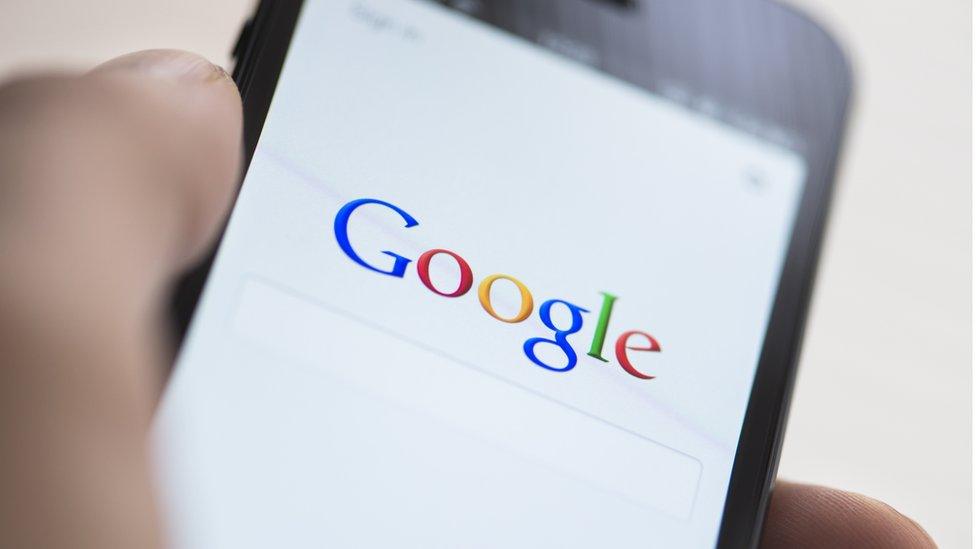
Google will pause all ads related to the abortion referendum in the Republic of Ireland
Google's decision to ban advertisements related to the upcoming abortion referendum in the Republic of Ireland has been criticised by pro-life campaigners.
The internet giant announced on Wednesday they will "pause all ads" following their recent update on election honesty.
The policy will last until 26 May.
The pro-life campaign say the move is disproportionate, while the pro-choice campaign welcomed the decision.
The unprecedented move by Google has been criticised in some quarters, and comes just one day after Facebook bans all non-Irish based referendum ads on its platform.
In a statement Google have said the decision was made "following our update around election integrity efforts globally".
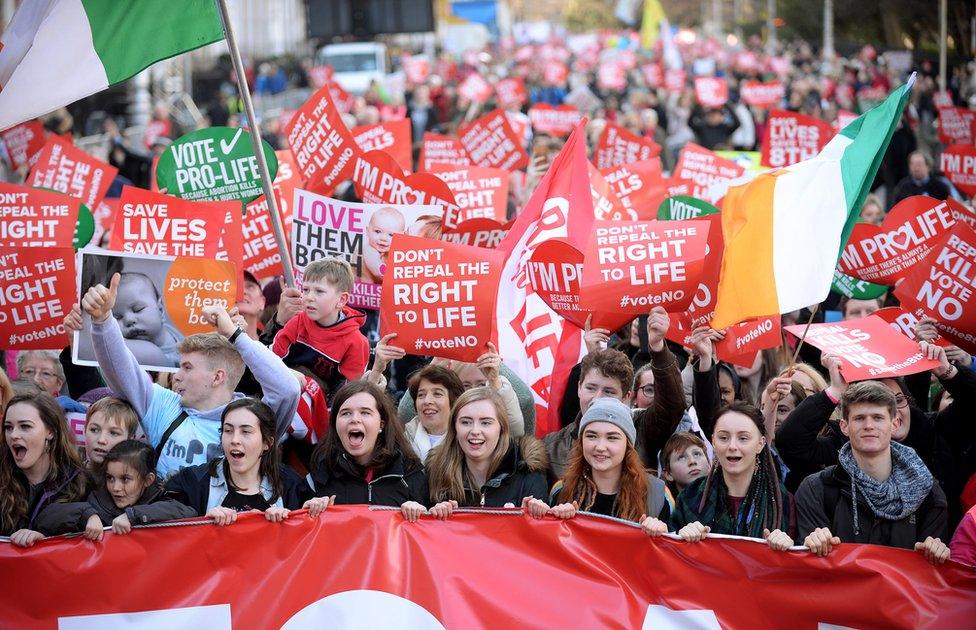
Anti-abortion campaigners held a rally in March
The Republic of Ireland is to vote on whether to make changes to abortion law later this month.
The eighth amendment was added to the Irish constitution in 1983 and acknowledges the equal right to life of the mother and unborn.
A referendum is required to repeal the amendment.
David Quinn, head of the Iona Institute - an advocacy group which supports the retention of the 8th amendment - described the ban as outrageous.
He believes that traditional media outlets in the Republic of Ireland "make life easy" for pro-choice groups, and that the Save the Eighth campaign rely on social media ads to deliver their message directly to the public.
"It is an outrageous and disproportionate decision to simply ban all referendum ads.
"This very important platform has been denied to us; it should not comfort Google that it is to the delight of the yes side and to the disgust of us on the no side," he added.
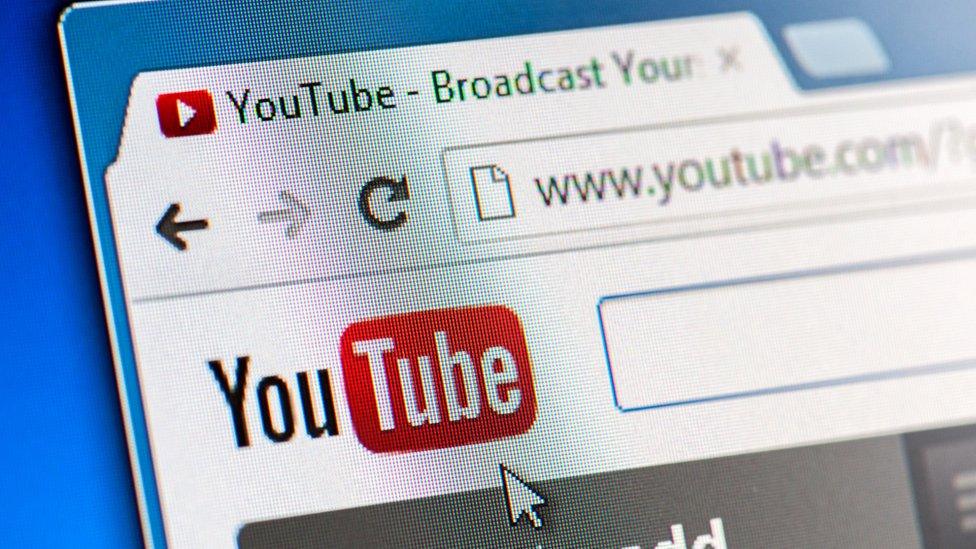
Google will "un-pause" the ban after the referendum
Google's policy only applies to paid ads and will have no impact on individuals sharing content on their Google or YouTube accounts.
However Mr Quinn believes the pre-paid ads allowed the pro-life campaign to communicate their message in a co-ordinated approach.
"In every election we know the political parties will pay for posters to be printed and put up in a systematic way, they do the same thing with leaflets.
"This was simply a modern version of doing the same thing and Google have suddenly decided no you can't do it," he said.
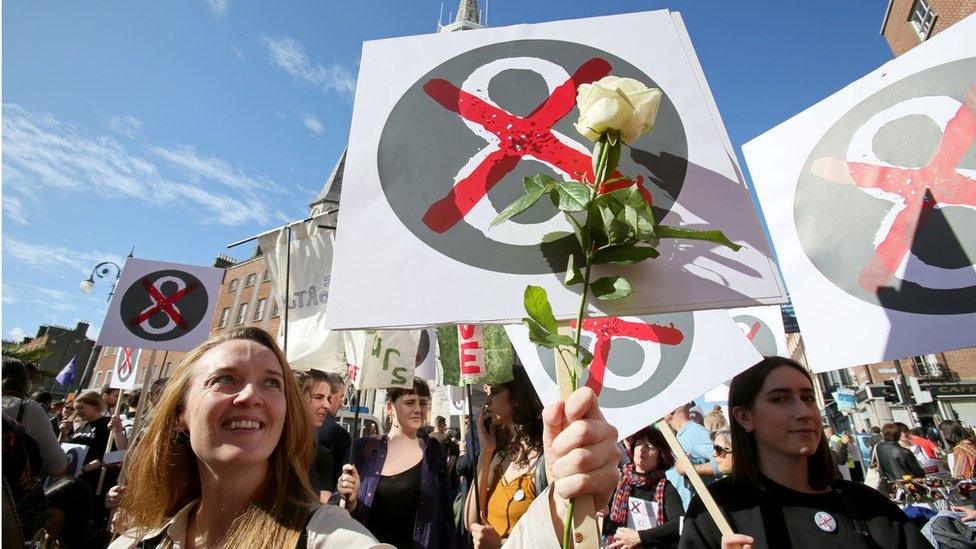
Campaigners have taken to the streets across the island of Ireland over the Eighth Amendment referendum
Although it caught them off guard, Google's policy decision was welcomed by Together For Yes - the umbrella group that is in favour of repealing the 8th amendment.
Peter Tanham is their head of digital. He said they've had to alter their digital campaign plans.
"We have a team of volunteers working on a Google ad strategy for weeks now and we've had to change our plans on Wednesday.
"That's OK, these are campaigns and they change by the day," he added.
Mr Tanham rejected the idea that the ban was tantamount to censorship.
He said it affected the yes side as much as the no side.
"Censorship is a specific thing, that you're trying to censor one point of view or another, but this is Google's policy across the board".

Abortion in the Republic of Ireland
The Republic of Ireland currently has a near total ban on abortion.
Terminations are not permitted in cases of rape or incest, or when there is a foetal abnormality and thousands of women travel abroad for a termination every year.
The Eighth Amendment to the Republic's constitution, introduced in 1983, "acknowledges the right to life of the unborn".
However, there have been significant challenges and changes to the law in recent years.
A campaign to liberalise abortion gathered momentum in 2012, when Savita Halappanavar died in a Galway hospital after she was refused an abortion during a miscarriage.

- Published9 May 2018
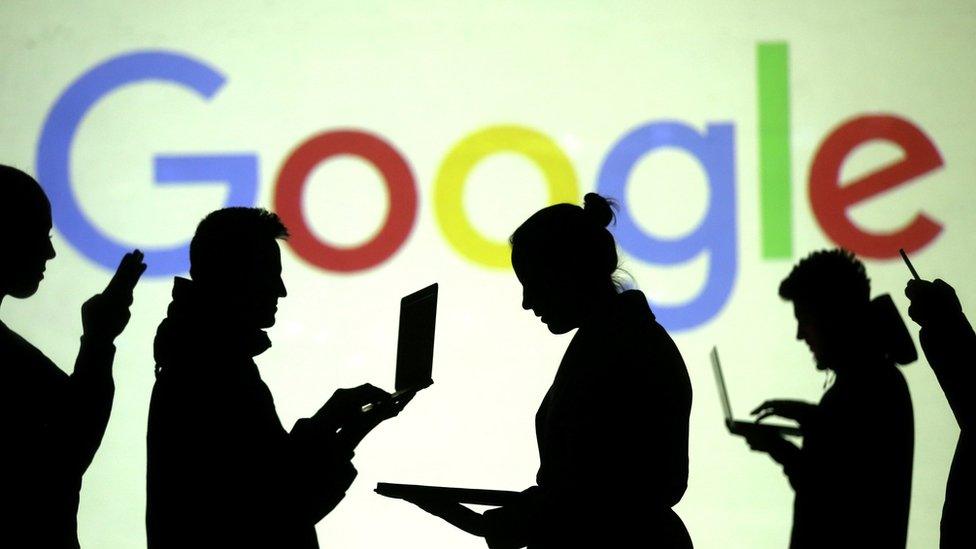
- Published8 May 2018
